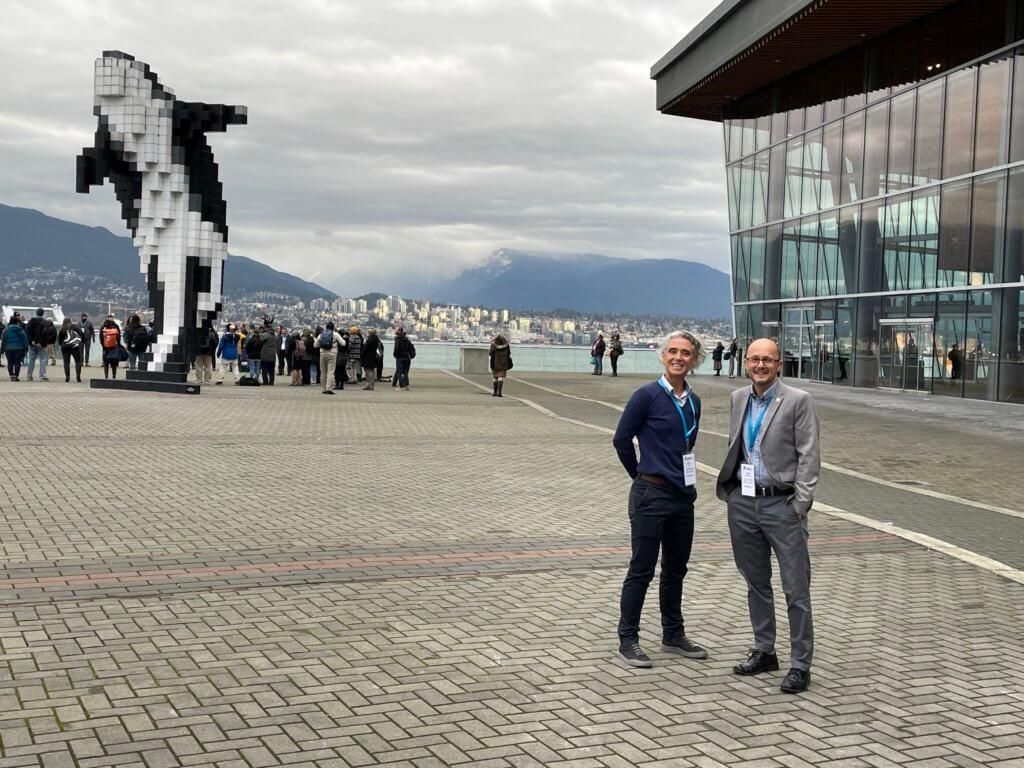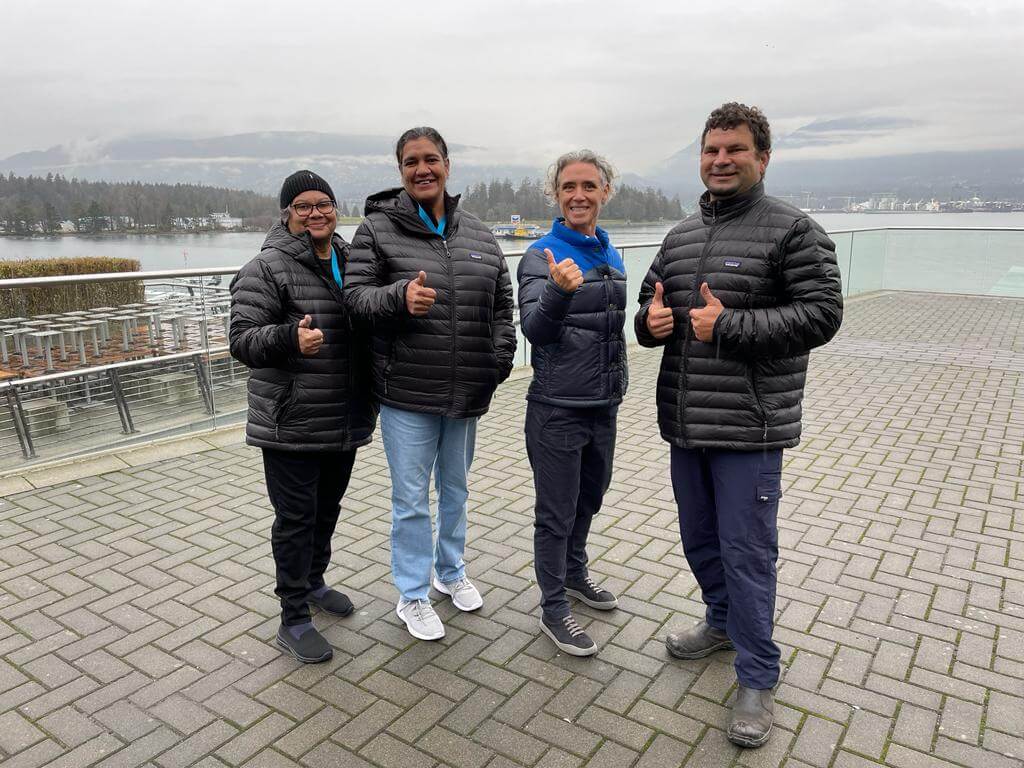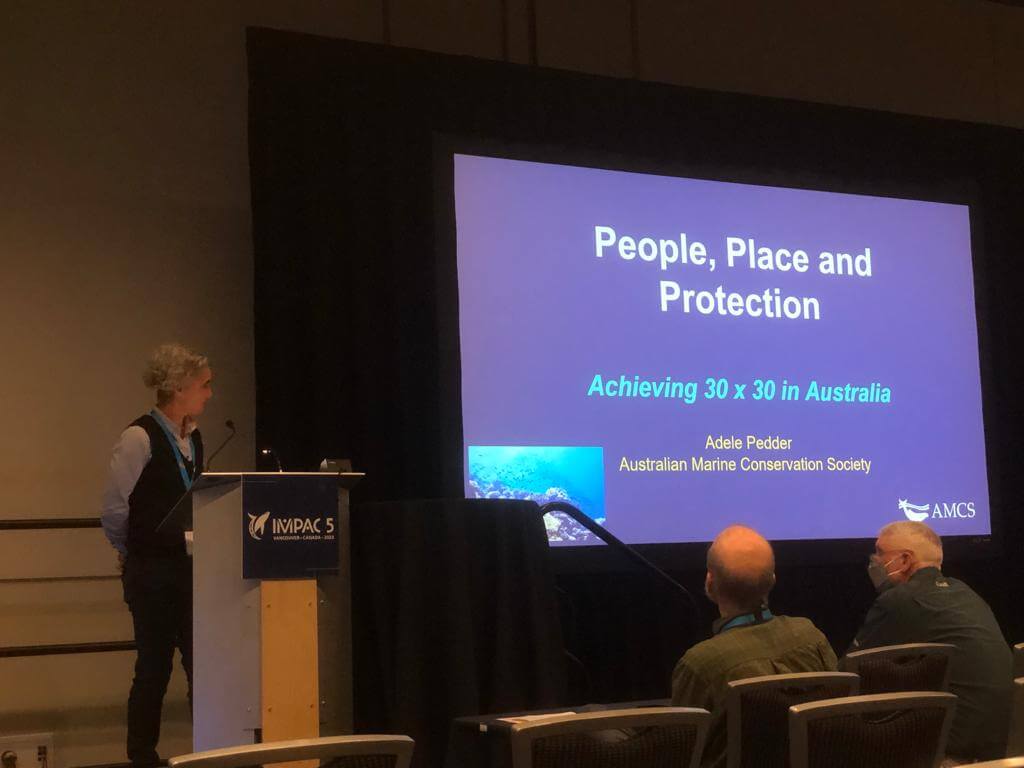There can be no healthy planet without healthy oceans, and the health of our oceans is in decline.

Darren Kindleysides, CEO and Adele Pedder, Marine Protected Areas Manager, representing AMCS at IMPAC5, Canada
Our oceans – our planetary life-support – face an unprecedented collision of crises. The climate and extinction emergencies overlay broader global challenges of health, conflict, faltering economies and inequity.
With pressures on our oceans at levels never experienced before, it is clear that the margin for error is narrowing. However, the window of opportunity is widening. December’s landmark decision by 188 countries to protect 30% of our sea and land by 2030 is a fundamental and long-needed consensus for ocean protection.
There is now global agreement that we need networks of ‘Marine Protected Areas’ – special places in our oceans where conservation is given priority – but with only 8% of the world’s oceans currently protected there is far to go, fast, to turn agreement into action.
One of the most important ocean conservation meetings in years has just taken place against this backdrop. It could not have been more timely.
The aim of the fifth International Marine Protected Areas Congress (IMPAC5) in Vancouver that concluded on 9 February was to “chart a detailed course to protect 30% of the World Ocean by 2030.”
With more than 2,000 of the ocean’s best and brightest – First Nations, decision makers, scientists, local communities, stakeholders, ocean industries and conservationists – it was the first opportunity to give some teeth to this global ocean conservation target. And it was a success.
It’s hard to distill five intense days of 500 presentations and 5000 conversations into headlines, but I’ll give it a go:
We’re all in the same canoe, and we need to start acting like it. This recurring theme drew on the illustrations and stories of the host First Nations people, the Musqueam, Squamish and Tsleil-Waututh, and culminated in the closing ceremony with a symbolic paddle being handed to the host country of the next IMPAC, Senegal. We all rely on and are sustained by our oceans and we must all work together to protect them. We have a global target. We have to start paddling in the same direction, irrespective of the sector we represent. And, in striving towards the ambitious target, there is not just an urgent need for new funding to accelerate protection efforts, but a need to ensure resources, data and technology are shared equitably to support all nations to contribute to the global target.
We need to do better in supporting and affirming the fundamental importance of Indigenous-led conservation of coasts and seas. First Nations people have always been custodians of land and sea Country. Their experience, knowledge and leadership are foundational to caring for our oceans and coasts. IMPAC convened First Nations people from around the world as an unprecedented global forum for indigenous knowledge sharing on Marine Protected Areas. With thanks to the Bloomberg Ocean Fund, AMCS was proud to have been able to enable a delegation of three Traditional Owners from the Gulf of Carpentaria to attend IMPAC5 and be part of these important discussions.

Fiona, Corrine & David from the li-Anthawirriyarra Sea Rangers travelled to IMPAC5 together with Adele from AMCS
It’s not just a question of how much of our ocean we should protect. The 30% by 2030 target is a critical shared ambition, but, in focussing on how much of our oceans should be in protected areas we must not lose sight of the quality of protection. How we manage these areas and where we place them to do the best possible job of safeguarding ocean life is just as important.
Whilst protected areas are the backbone of ocean conservation, we wouldn’t choose to protect just 30% of our own heart or lungs. In tandem with protected areas, we need to tackle climate change, plastic pollution, offshore mining and unsustainable fishing to ensure we’re caring for all of our oceans.

Adele presenting AMCS’ Marine Park work at IMPAC5
In the face of startling declines in ocean health, momentum for better marine protection continues to build and IMPAC5 played a crucial part. There were significant commitments made by participating governments, most notably by host nation Canada, and a powerful call to arms issued by the Congress Chairs.
Marine Protected Areas are as diverse as our oceans and the people whose lives are connected to them. However, it’s clear the challenges in meeting the global target are shared and similar. IMPAC5 demonstrated that there is a global movement and meeting of minds to overcome the challenges and make the most of the opportunities for safeguarding our precious ocean.
It has been a privilege to represent our wonderful supporters and Australia’s oceans at this critical and timely global meeting.
Darren
